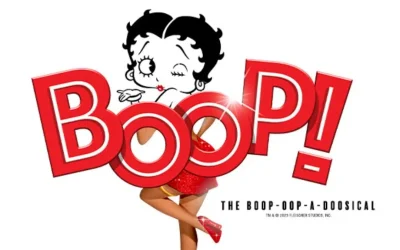Live entertainment giant Live Nation, which has had to fend off similar legal challenges in the past, is facing a class action lawsuit in Baltimore over the service fees the company charges on tickets.
Filed in the Northern Division of U.S. District Court in Maryland late last week, the lawsuit takes the unique approach of essentially accusing Live Nation’s Ticketmaster division of being a scalper by charging above face value for tickets, which is against the law in the City of Baltimore.
“The Defendants consistently and regularly sell tickets to events in Baltimore City at prices far exceeding the face value of those tickets,” the lawsuit states. Among other things, Defendants impose and conspire to impose charges in addition to the face value of tickets denominated as ‘service charges,’ ‘convenience fees,’ ‘processing fees,’ and other unlawful charges (collectively, ‘service charges’). Because the Defendants sell tickets to Baltimore City events, they are acting as ‘ticket agencies’ under Baltimore City law – but none of the Defendants are licensed, as required, with Baltimore City.
“Even if the Defendants had been licensed ‘ticket agencies,’ however, their activities described herein still would constitute wholesale violations of Baltimore City scalping laws. These laws, designed to protect the public, are simply ignored by the Defendants, who dominate the ticket sales market for events in Baltimore City.”
The lawsuit was filed by Baltimore resident Andre Bourgeois, who bought tickets in 2009 to see Jackson Browne at the Lyric Opera House that carried a face value of $52 each. Ticketmaster then allegedly tacked on additional services charges of $12 per ticket, which represent more than 20 percent above the “value of the ticket.”
The city prohibits ticket agencies from tacking on convenience charges over $0.50 above face value, but Ticketmaster routinely adds fees well in excess of the allowed amount, according to the lawsuit.
“The Defendants, however, have completely ignored the restrictions of Baltimore City law and have criminally overcharged their customers,” the lawsuit states. “They have reaped huge financial windfalls from operating outside of the rules which apply to them. As a result of Defendants’ actions described herein, Plaintiff and the putative class defined herein (the ‘Class’) assert claims for Money Had and Received, Negligent Misrepresentation, violation of the Maryland Consumer Protection Act, Deceit by Non- Disclosure or Concealment, and violation of the federal Racketeer Influenced Corrupt Organizations Act (‘RICO’).
When reached by TicketNews today, July 6, Maryland attorney Benjamin Carney, who represents Bourgeois and the class, declined to comment about the pending lawsuit. A Live Nation spokesperson did not return a message seeking comment.
The issue of service fees has long been a complicated one for Ticketmaster, which created the business model of charging fees in the 1980s and then splitting them with venues, promoters, sports teams or others as an additional revenue driver.
Over the years, fans have continuously cried foul over the fees, which at times have exceeded 40 percent for some events, and in an effort to appease ticket buyer, Ticketmaster has occasionally sold tickets with all-in pricing. All-in pricing includes the face value and all additional costs associated with a ticket in one price. In fact, Live Nation’s recent discount ticketing deal with Groupon includes all-in pricing.
In 2009, based on public finance reports, Ticketmaster generated over $1 billion in revenues as a result of the fees, which were charged on tickets worth a total of $8 billion, the lawsuit estimates.
“Defendants represented to Mr. Bourgeois that the additional service charges imposed on him were legitimate and collectible,” the lawsuit states. “Defendants did not disclose to Mr. Bourgeois that they were not licensed as ticket agencies by the Baltimore City Director of Finance. Defendants also did not disclose to Mr. Bourgeois that Defendants were prohibited by the Baltimore City Code from imposing and collecting the additional service charges which he paid.
“Despite full knowledge that Mr. Bourgeois and other Class members could not be legally charged for additional service charges, the Defendants willfully and knowingly charged Plaintiff and other members of the Class service charges in excess of the face value of each ticket they sold, as well as in excess of the $0.50 permissible service charges for licensed ticket agencies. Defendants pocketed these illegal service charges, and refused to credit any portion of them to the ticket purchases of Plaintiff and members of the Class.”



